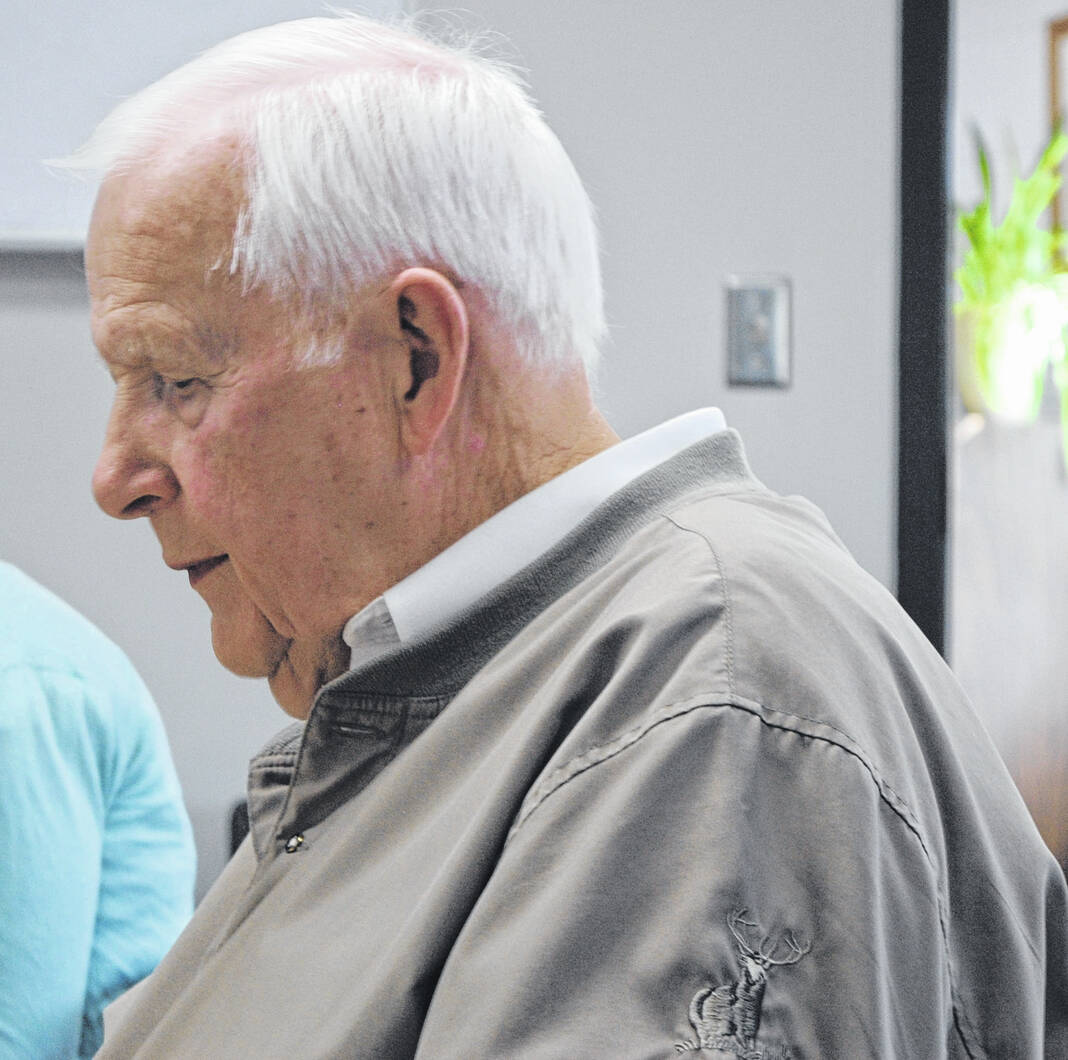
Broadband expansion is coming to the southeastern Highland County area thanks to the Ohio Residential Broadband Expansion Grant (ORBEG) program, according to Gary Cooper, CEO and president of the Southern Ohio Communication Services, Inc. at the weekly Wednesday meeting of the Highland County Board of Commissioners.
Cooper said the grant brings broadband access to 1,007 homes and businesses across a total of 109 miles, which were about 30.60 percent and 30.97 percent of the ORBEG grant, respectively. He said the grant program was required to be finished within two years and that pre-engineering was already started. However, he said the county had 336 “passings,” or homes and businesses which were not covered in the grant.
Cooper said the reason the entire area wasn’t covered in the grant was that the grant money was chosen on a competitive basis and the rules hadn’t been issued on how the money would be dispersed. He said in the application process, each application got points for different attributes, so he chose a smaller grant to have a better chance to get money.
“My thought was it’s better to get a little than not to get anything,” Cooper said.
Cooper said that this was the first round of House Bill 2 money and that he thought there would be an opportunity to get more money in additional rounds of funding.
He said he was bringing the funding gap to the county’s attention so that in case the county had any federal money come available, it could be used to fill the gap. He said that while they’re already building the infrastructure in the area for the next two years, he’d like to get that additional money so they could continue building instead of having to take a break.
In other news, representatives from the Power Siting Board attended the meeting to provide updates on county solar projects and how Senate Bill 52 affects the county for those projects.
Juliana Graham-Price, the community liaison with the Ohio Power Siting Board (OPSB), said that there are currently 11 projects fully grandfathered into Senate Bill 52 and others that were partly grandfathered in, but also must include the ad hoc board member provision. The Palomino Solar Project was one of the latter, so for that project there would need to be an ad hoc member appointed by the board of commissioners and township trustee, or a designee, to serve on the OPSB for the specific project. These appointees would need to be chosen by April 14, 2022.
Matt Butler, public information officer with the OPSB, said the solar project process is divided into five steps: Pre-application, application filing, completeness review, and staff investigations (which include local hearings as well as hearings in Columbus). Board members schedule the case for a vote for a decision which might then have a rehearing and a potential appeal process to the Ohio Supreme Court depending on how “contentious” the case might be.
Butler said the intervention period is currently still open for the Palomino Solar Project, which allows people to make their opinions known on the project. He said people that intervene must have a vested interest in the project — like someone that owns land in the area. He said that intervening in the case gives that person full standing in the case, which means they could make data requests of other parties in the case. He said they could participate in the evidentiary hearing as well as still participate in the local public hearing if they choose.
Butler said the aspect of restricted land and its process should be done before the interested company approaches the OPSB, which means that the company should approach the county.
In other news, commissioner Dave Daniels said that Resolution 22-55 concerns the delinquency shut-offs. He said the Sewer Use Agreement and the Sewer Use Ordinance both say that the sewer lines and connections in the system must be inspected and there must be a cleanout. He said that as the commissioners have gone out, they’ve seen that people haven’t put their “laterals in,” according to the specified requirements, and haven’t had a shutoff or a cleanout.
Daniels said if people don’t have a cleanout, are delinquent and the county tries to shut them off, the resolution allows them to dig down, correct what should have been done already, bill the property owner for the time and material, and makes them subject to the fine that was already outlined in the fee structure.
Commissioner Jeff Duncan said there have been a couple of issues with the dog pound where there were struggles getting figures from Environmental Engineering concerning hooking up the septic, water and natural gas. He said they decided to continue to work to figure the issues out and the project would be brought forth later. Duncan said the project was getting “real close” to being ready to be let out for bids and that he hopes they’d be able to do that by the next meeting.
In other news, commissioner Terry Britton said that McCarty Associates said they were moving forward with the Buford school project. He said they finished all the surveying and were working on bid packets. He said he hopes to start putting it out for bids in the near future.
Reach Jacob Clary at 937-402-2570.


